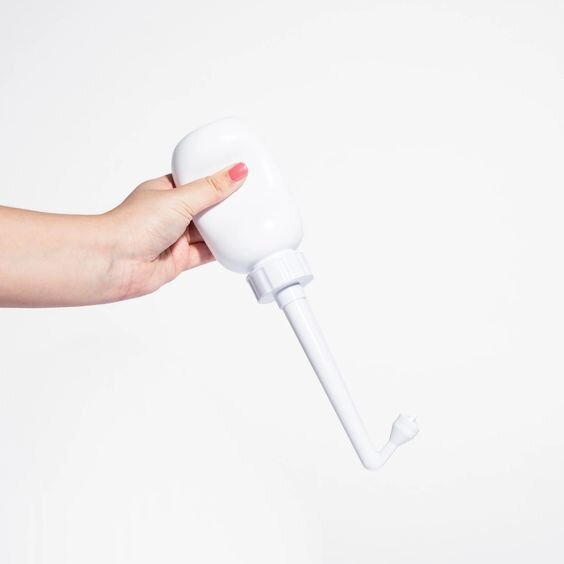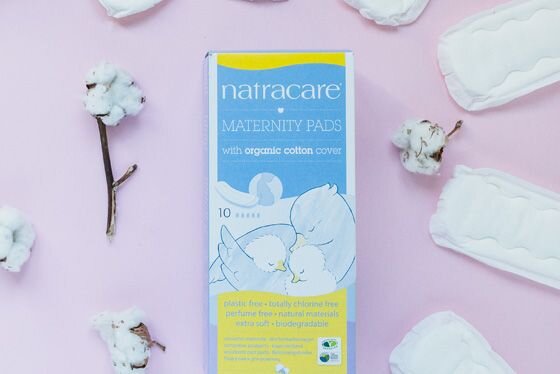What to Pack in Your Birth Bag
Trying to figure out what’s really necessary to pack in your birth bag? Whether you’re birthing at a hospital or birthing center, you’re going to want to have one packed by around 36 weeks. You don’t need nearly as much as you think, but we’re listed a few essentials and some things to make you feel good.
We love the 03 sets, which we sometimes wear to bed and all day postpartum. They’re great to have in the hospital or birth center too, easy access for bf.
Love these nursing bras and underwear from Australian brand Juem. Paloma bra and Lou brief are our favorites.
A diffuser and essential oils can be amazing during labor - we loved using orange for it’s uplifting and energizing properties.
Face spray can really feel amazing when you’re in labor, and after - hospital rooms can get DRY.
This one is a nice to have not need to have, but we are obsessed with this blanket from Willaby. They also have great swaddles, burp cloths etc.
We love this BAGGU bag for packing everything, and use it as a diaper bag afterwards. It’s a little small so if you’re planning on bringing a lot more, you can just use a weekender.
We love a robe to hang out in, it’s nice to have something comfortable that gives you easy access while you figure out breastfeeding.
Our friend Katie created the perfect (seriously, perfect) lounge set - you’ll look put together and be super comfortable - trust us on this one. You’ll live in it.
We’d pack a hat, and coverall with footies, and a couple of swaddles if you don’t want to use the ones they provide. No need to bring a ton of options. We love NatureBaby.
Wool socks to throw on can really make you feel cozy (and clean) when you’re walking on hospital or birth center floors.
These one time use towelettes are great to quickly wipe your face, hands, whatever - with the refreshing and calming smell of lavender.
You’re going to need some type of nursing balm if you’re breast/chestfeeding. This one smells lovely and is all natural.
One of the most essential post-birth items (it’s way better than the one they provide you in the hospital if you’re birthing there). You basically hold it upside down and squirt for continuous, gentle water pressure exactly where you need it. We liked filling with warm water and following with a perineal spray.
This spray has organic herbs traditionally used for postpartum relief and to help soothe perineal discomfort before and after childbirth. You can pack it in your birth bag and use with your peri bottle.
You’ll probably want to get a few boxes of these - maybe 3 - since there are only about 10 in a pack. These were our favorites. You can bring a few in your birth bag.
Other things to bring along —
Your own pillow
Toiletries you can’t live a day without
Baby’s car seat (you can’t leave the hospital without one!)
Insurance Card
Snacks and drinks — we love coconut water for hydration, and anything protein packed for energy
Chargers
Your laptop if you’re going to be there for a few days (to watch netflix, etc)
Partner’s bag of things
Knowing what to do when you think you might be pregnant can be confusing. When can you take a pregnancy test? If it’s positive, when do you make a prenatal appointment? What are the guidelines on taking care of yourself before you see a care provider? We break things down here with help from SF-based doula Lauren Miller Brown.
So often women are told to slow down when pregnant, and while for some high-risk pregnancies bed rest is required, in most healthy pregnancies, regular movement is recommended. Hear from Peri Hughes, SF based prenatal fitness expert on how you can safely approach exercise during pregnancy.
As I begin to make sense of my pregnancy and my experience with hyperemesis gravidarum (HG), I can now see so much that would have been helpful to know and understand then. In hopes of easing your journey if you or a loved one is experiencing HG — here’s my take.
Up to eighty percent of women experience some type of nausea during pregnancy. Here are a few natural remedies that may help manage and reduce your morning sickness without side effects.
Does your provider make you feel supported, heard, and safe? Do you feel comfortable with the birthing locations that are available to you? If your answer isn’t “yes” to either of these questions, know that you don't have to settle for the status quo. Learn more about choosing a provider and birthing location here.
Acupuncture can alleviate many acute and chronic conditions, including those common in pregnancy. Based on the trimester that you are in, there are specific ways in which you may benefit.
Adding tea into your beverage rotation provides important vitamins and minerals for you and your babe, adds some variety to what may seem like limited choices, and can even help alleviate unwanted symptoms.
A pelvic floor PT is an expert at evaluating and treating issues that commonly arise in pregnancy. Even if you aren’t experiencing specific symptoms, PTs can be incredibly helpful.
No matter the type of birth you envision (or the one you end up having), doulas are invaluable advocates who can help you make educated and informed decisions during pregnancy, birth, and the postpartum period.

























What books should I buy? Blogs to read? Podcasts to download? We wanted to educate ourselves but had a hard time finding inclusive, evidence-based information that wasn’t prescriptive.